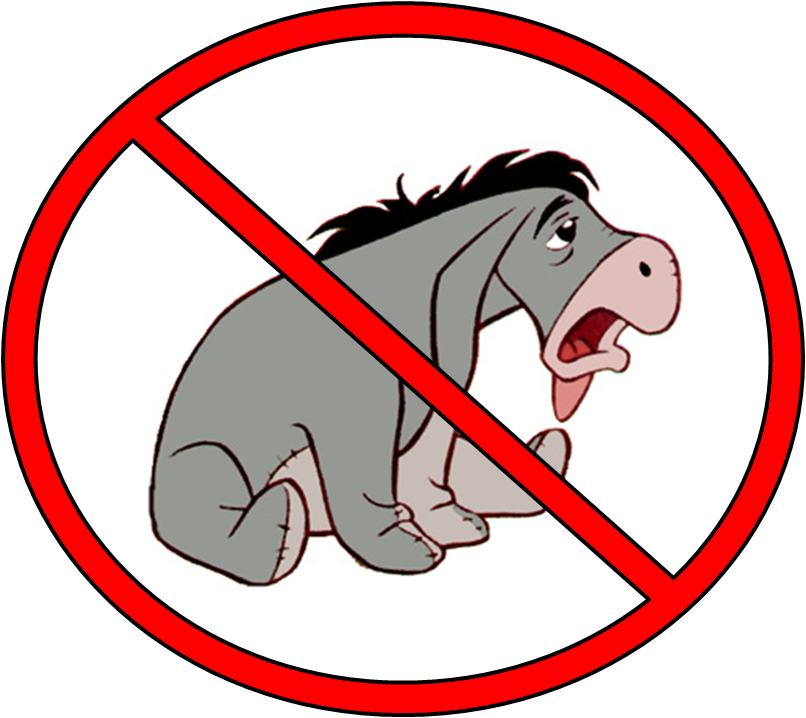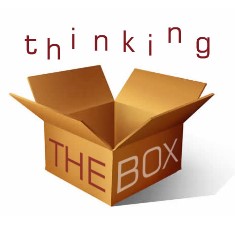Janna's Blog
Hands-on practical tips, advice, and perspectives are found in Janna's blog. Contact us for topics and questions you would like addressed in the blog.
<< <
Page 5 of 27
> >>

Let’s start with a story.
Two business owners are in the same market, offer essentially the same products, target mutual markets, and yet at year end, produce very different results. One business is doing well, the other is doing poorly. One business owner seems on top of their game, the other isn’t succeeding. One business is growing, the other business is barely scraping by and the owner is beginning to wonder whether it is time to sell, or maybe just shut the doors.
What is the difference between the two businesses? There can be any number of factors to consider. Perhaps the owners differ in the amount of knowledge and skills they have for running a business; there may be a difference in the systems which have been put into place--or maybe they are missing altogether. Consider the team that drives the business forward, how pricing is determined, how marketing is presented, and how sales are made. Many factors play into the success and growth of a business. Yet, there is one characteristic that creates the largest differentiator between the two business environments: the mindset of the owner and/or leadership. What is their perspective on every situation, every economic obstacle, every customer, and perhaps on life in general? The attitude of leadership sets the tone for the environment of the business.
Is there a pervasive attitude similar to Eeyore, the donkey friend of Winnie-the-Pooh? In this type of environment the we get below-the-line thinking which produces a string of blame, excuses, and denial manifested in “woe is me” attitudes such as life is hard, this is what happened, I don’t get the same opportunities as others, the economy is really hurting, etc. In below-the-line thinking we often hear people blaming someone else, producing excuses for why things didn’t get accomplished, and denying that their attitude is a main source of the issues at hand. Below-the-line thinking creates a reason for everything and generates a need to offer explanations.
On the other hand, the attitude that propels above-the-line thinking is more like Pooh’s friends Kanga or Owl. Above-the-line thinkers accept ownership, accountability, and responsibility for everything they do. They understand that what they cannot control (economy, taxes, etc.) is only 10% of life, but what they have great control over is 90% of their life. This is what Stephen Covey, author of The Seven Habits of Highly Effective People, calls the 90/10 rule. How your day goes is totally up to you, as is how you react to the difficult situations and even the successes you achieve through disastrous times. Steve Jobs got fired from Apple which most likely was not what he called the best day of his life, yet without being fired from Apple he would not have created Pixar and NeXT which are part of the foundation of the Apple products we love today. Above-the-line thinking creates results, and results don’t require explanations. They speak for themselves.
(Without one you can die!)
 The best way to fail at a business is not having a plan; the best way to wander through your career and get stuck in a rut is by not having a plan; and--you guessed it--the best way to get lost on a mountain is not having a plan.
The best way to fail at a business is not having a plan; the best way to wander through your career and get stuck in a rut is by not having a plan; and--you guessed it--the best way to get lost on a mountain is not having a plan.
There are tools that help us stay on-track in life. On the trail it is a compass, a map, and possibly even a GPS that, used in tandem, will generally keep you on course. For example, you can be in the woods with only a map and still get lost, but add in a compass and you'll probably find your way. Because the magnetized compass needle always indicates magnetic north, you'll consistently know how to find this direction even if you go in circles. So using a compass in conjunction with your map keeps you adapting to stay on the right track.
Your business and career plan, if you use it, accomplishes the same purpose. First, you step back from the day to day environment to create the plan of what you want to accomplish and how you'll do it. On a regular basis - at least monthly - you measure your actions against the detailed steps you of your plan. If you are straying off course, you step back again to review your plan, realign your focus, and redirect your steps.
How does this relate to business? Without a plan, you risk going off track. Are you heading into new sales situations, new markets, and new projects without doing your homework? Are you resting on the knowledge you gained last year or five years ago on how to sell? Did your education process stop the day you graduated from high school or college? Are you finding the new employee that was just hired is getting the better projects, the better office, and the better promotions?
The process of learning, growing your skills, and adapting to new environments are critical tools to stay on track and reach your goals, whatever they are.
One of my clients sells cars. This process is dramatically different today than it was even five years ago. Fifteen years ago, everyone cared about what was “under the hood.” What was the engine like; how did it run? What was the torque? (I learned from my advertising client that people used to care about torque. Yes, I had to look it up – so you can, too, if you're interested.) Today, anyone selling cars better know how to use a smart phone. They better know how to connect it to the car. They better be able to look up the competitor information on that phone and discuss it out on the lot. To close the deal, they better be able to talk accurately to the customer who has done the research and possibly knows more than them about the car.
When hiring a new sales person, the car dealership cares more about whether that person can understand and discuss the car's technology versus knowing how the engine runs. If you are an auto sales person who's selling the same way you did ten years ago, there is a good chance that your job might be in jeopardy. And it's not about age. My client has an 82-year-old sales person that is very successful. He owns a smartphone and knows how to use it. He created a plan and has learned how to adapt. Have YOU?

What is critical thinking? There are multiple definitions, some very complex, yet the simple definition is not just the possession of skills but the ability and habit to continually use them in new and different ways. Put another way, critical thinking means using the normal to create and then apply the new.
Over the last five years I have often challenged clients and workshop attendees on their critical thinking skills. These are bright, qualified, skilled and hardworking business owners and executives who have accomplished significant challenges in their careers and business. They have worked through significant challenges and look at the world in ways that many of us don’t comprehend.
Yet, when posed with out-of-the-box types of problems they find it challenging to come up with not simply a good answer, but with that “best” answer. I wonder if the day-to-day challenge of running their business environments has reduced their ability to be creative critical thinkers.
I had the opportunity to be the guest speaker for a high school leadership training class. There were about 30 students from about five high schools. It was a fun time of encouraging them to consider their classroom and personal goals for the next school year. Don’t I wish I had that opportunity when I was 17! (But that is another topic.)
I presented them with two out-of-the-box scenarios and was looking for that elusive "best" answer. When presenting similar scenarios to business owners, they throw ideas at me for a couple of minutes – and then I give them the “best” answer. So it amazed me that within about 20 seconds a number of the students had thought of the “best” answer for my hypothetical situations.
I was surprised, yet it made me extremely hopeful. For all the criticism of today’s youth and millennials, maybe their critical thinking skills are a lot better than we think. Maybe their fresh way of looking at things is that advantage we need in our business. We do need to stop, listen and allow them the time to say things – even things that we may not fully understand.
Did we somewhere along the way - in running businesses, fighting the daily fight of life - stop thinking critically? Have we stopped being creative in our thought processes and now default to what is easy or normal? We believe we are the harder working and wiser generation, but we seem to have stopped using any critical thinking skills that are outside our comfort zone.
My challenge to you: Change your thinking process--start thinking like an 18 year old. It might revolutionize your business, you just might have some fun, and you'll ultimately prepare your business for the growth that comes with a new generation of leaders.
Curiosity is critical in business. Accepting status quo, what others tell you is right and looking at the world the way everyone else does will and does get you in trouble.
Instead we need to step back and watch a 2 year old. What do they do?
• The explore everything, hold it upside down and look at it in every way possible.
• They challenge what others say and ask WHY? and keep asking WHY?
• “I can do it myself” is their mantra (well maybe we need to moderate that perspective.)
• There is nothing they can’t do in their mind.
• They are ready to take on the world.
Have you lost your natural desire to be curious, ask questions, challenge how others think you should act? If so then stop, slow down and watch a 2 year old. Start exploring your own world. There is so much at our fingertips that passes us by every day.
Curiosity may have killed the cat – but it will grow your business!
Control freak is often an apt description of business owners. We like the ability to control our destiny, make our own decisions and see the impact of what we accomplish. The challenge comes with:
• understanding how little control we actually have – just a perceived control,
• learning how to relinquish control i.e. delegate, for the business to grow and
• how to leverage our controlling nature into something successful.
An employee kept watching how the business was being run, the waste that was taking place within the business, how customers were being treated and the lack of profit being generated by the business. These frustrations led to his determination to start his own business. His premise was he would treat employees much better than his current employer, eliminate the waste taking place, treat his customers better and generate more profit. In essence, he wanted control over the areas his current employer struggled. He accomplished those goals. He learned a number of lessons in the process. These were his and others primary drivers for family business ownership (and possibly entrepreneurship in general). The business owner is tired of:
• Following someone else’s lead/orders
• Believes they can serve the customer better
• Has different ideas on how to implement the product or service
• Desires flexibility in their day to day lives and a stronger balance between work and home and
• Can make more money, i.e. profit
The lessons learned are:
• Their new boss (themselves) is not the wonderful bosses they thought they would be and they have a great deal to learn. Looking in the mirror at the new boss isn’t always a pretty sight. It is the age old statement of “the grass is always greener on the other side of the fence.”
• They can serve the customer better, but it is much harder than they thought and they start to understand  their old company better. Customers can and often are demanding. Their interpretation of quality is different than yours. You may see value in something that the customer doesn’t care about.
their old company better. Customers can and often are demanding. Their interpretation of quality is different than yours. You may see value in something that the customer doesn’t care about.
• They do have different ideas on implementation – some of those ideas work and some don’t
• Flexibility is fantastic – you can work any part of the 24 hours per day that you want. Yes, you do have flexibility to take kids to school, pick them up, go to games etc., but there is a cost and that cost is often working evenings and weekends and other times that you didn’t previously work.
Reality:
What makes great entrepreneurs is the desire for control, but understanding less is more. To have the utmost control, we need to leverage our skills and have others in place to do the work – therefore we stop being the bottleneck to success.
The more we want and think we have control, the less we have. There is always someone else who truly has more control. It might be customers, government, laws, acts of God. It is that desire for control that if not managed well drains the business. Lack of an ability to delegate is the result of the business owners desire to have control. They can do it better than anyone else. We serve the clients better, they know the product better, therefore they don’t delegate. We truly want the control and the ego lift that comes with it. Stop it NOW. Learn to delegate and delegate wisely.
 Let’s start with a story.
Let’s start with a story. The best way to fail at a business is not having a plan; the best way to wander through your career and get stuck in a rut is by not having a plan; and--you guessed it--the best way to get lost on a mountain is not having a plan.
The best way to fail at a business is not having a plan; the best way to wander through your career and get stuck in a rut is by not having a plan; and--you guessed it--the best way to get lost on a mountain is not having a plan. What is critical thinking? There are multiple definitions, some very complex, yet the simple definition is not just the possession of skills but the ability and habit to continually use them in new and different ways. Put another way, critical thinking means using the normal to create and then apply the new.
What is critical thinking? There are multiple definitions, some very complex, yet the simple definition is not just the possession of skills but the ability and habit to continually use them in new and different ways. Put another way, critical thinking means using the normal to create and then apply the new.
 their old company better. Customers can and often are demanding. Their interpretation of quality is different than yours. You may see value in something that the customer doesn’t care about.
their old company better. Customers can and often are demanding. Their interpretation of quality is different than yours. You may see value in something that the customer doesn’t care about.